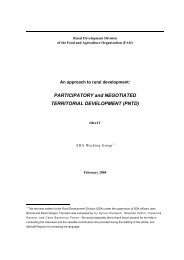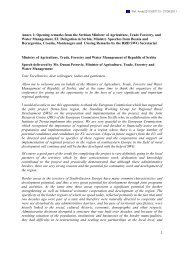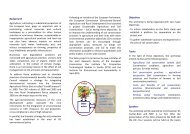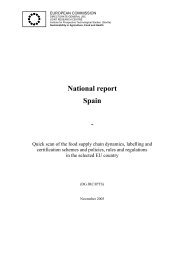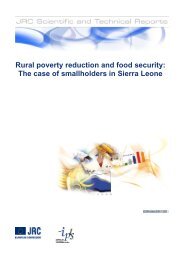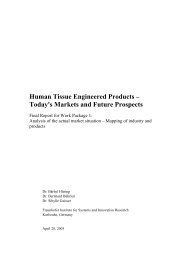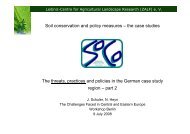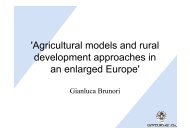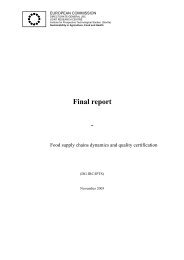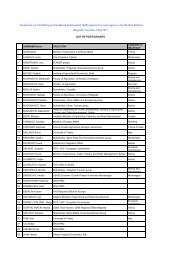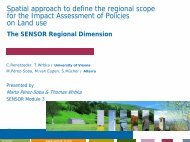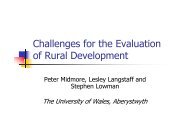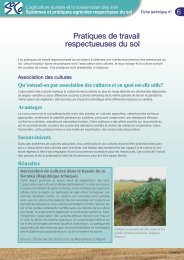SIERRA LEONE maq 4ª.indd - agrilife - Europa
SIERRA LEONE maq 4ª.indd - agrilife - Europa
SIERRA LEONE maq 4ª.indd - agrilife - Europa
You also want an ePaper? Increase the reach of your titles
YUMPU automatically turns print PDFs into web optimized ePapers that Google loves.
3 The Agricultural Sector<br />
66<br />
post-harvest losses due to spoilage. Facilities<br />
for value addition are inadequate. Processing<br />
facilities for most commodities are either not<br />
available, inefficient or not accessible. The<br />
quality of produce such as cocoa and coffee is<br />
usually affected as a result of poor processing<br />
technologies and methods. In other words, the<br />
impact of poor infrastructure undermines efforts<br />
by farmers to move towards a more commercial<br />
approach to their activities, thus impeding the<br />
development of the agricultural sector and its<br />
potential impact on poverty.<br />
3.5.3 Concluding remarks<br />
The growth of the agricultural sector in<br />
Sierra Leone is hampered by a series of specific<br />
constraints of which the most relevant have been<br />
addressed in this section i.e. manual systems of<br />
farming with low use of inputs (mainly fertilizers)<br />
and increasing levels of land/soil degradation (i.e.<br />
reducing idle period in the shifting cultivation<br />
system); low participation of farmers in decisionmaking,<br />
especially women and non-locals at<br />
chiefdom level (“strangers”) (Salazar, 2004);<br />
inefficient network of physical infrastructure,<br />
further weakened by a decade of conflict; weak<br />
or near total absence of agricultural support<br />
services (poor research and extension linkages,<br />
marketing structures, rural finance and poor<br />
community based and farmers organisations) and<br />
poor post-harvest systems.<br />
Clearly, agricultural policies in Sierra Leone<br />
may strengthen their positive impact on the<br />
farming sector focusing towards exploiting the<br />
country’s comparative advantage in those food<br />
crops that may contribute to food security and<br />
income growth. According to Jalloh (2006) the<br />
Ministry should formulate policies specific to rice<br />
and cocoa production focusing on yield increase,<br />
pest control, labour saving technologies and<br />
increase investment into research and extension<br />
service especially for these crops. However, such<br />
policies should be aimed at dealing with the<br />
specific constraints of small subsistence farmers<br />
which constitute the majority in the agricultural<br />
sector of Sierra Leone.



